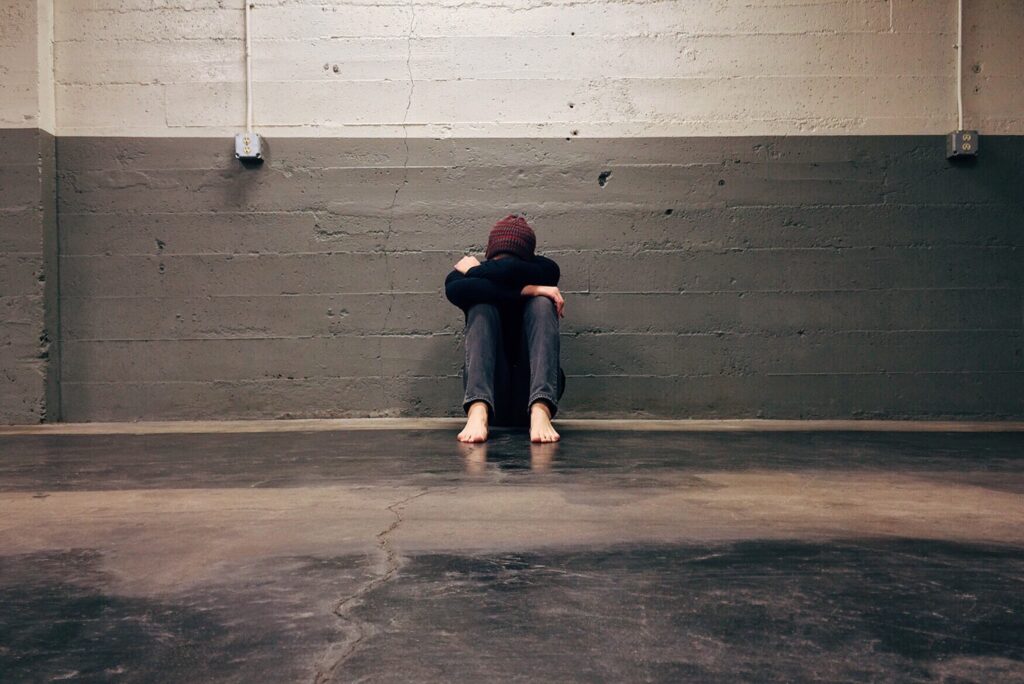
There is a lot of suffering going on in the world right now, as you may have observed if you keep up with the news. There are conflicts, famines, poverty, violent crimes, and sicknesses. But why should we be concerned about the pain of others? Why is it important if someone else is living a miserable life? The simple answer is that we still experience pain despite our best attempts as humans to make ourselves joyful. That’s not necessarily a bad thing—just like happiness isn’t always good either—but it does mean that happiness is something we all strive for even though it can be elusive at times. In this post I’ll explain why happiness is so important for us as individuals and how we can achieve more of it in our lives through meditation techniques and other methods that science has shown work well when used consistently over time.

Happiness is not the same thing as a life without pain.
Happiness is not the same thing as a life without pain. Happiness is not the same thing as a life without suffering. Happiness is not the same thing as a life without challenges. Happiness is not the same thing as a life without problems.
For instance, just because you are going through a difficult period right now doesn’t imply that you will always be sad. If you are now experiencing problems with your partner or spouse, your work, or your finances, for example, that doesn’t indicate that you are miserable and cannot be happy again.
Similarly, if you have lost someone close to you due to natural causes or tragic accidents like car accidents, heart attacks or strokes etc., that doesn’t mean that this loss has made your life miserable forever! There will come a time when this grief will pass away and eventually turn into acceptance after some time when one realizes that it was all for good in this world too!
A little bit of suffering is not necessarily a bad thing.
We all experience pain; that is a fact of life. Everybody experiences times in their lives when they aren’t feeling great or even at their worst. And while it’s true that sometimes external factors—such as when someone says something hurtful to us or when we are hurt in an accident—can contribute to our suffering, internal factors like anxiety and depression are frequently to blame.
However, just because pain exists in life does not mean that it must always be avoided. A little amount of pain may sometimes go a long way in helping us become better people and grow as individuals (and ultimately making the world better). Here are five reasons why sometimes it’s good for us to experience some suffering:
1. Happiness is a skill that you can learn.
Happiness is a skill that you can learn.
You can educate your mind to be cheerful if you want to. All it takes to change your life is to have the right mindset and then take actions for what that means for each of us. Mindfulness is the first step in improving your happiness and well-being because it helps us become more aware of our own thoughts, feelings, and behaviors in order to create positive changes within ourselves. We often overlook the power of being mindful because we think that having an active lifestyle or getting things done will bring us joy — but this isn’t always true! In fact, being too busy can actually distract us from discovering what really makes us happy or causes stress in our lives (which leads me back again…).
By setting aside time each day where nothing else matters but being present with oneself in this moment — no devices allowed! — mindfulness enables you to look through those distractions.

2. Many of the things that we think will make us happy, actually don’t make us happy in the long run.
There’s a popular fallacy that happiness is about getting what you want. But the truth is, we can’t always get what we want, and even when we do, it might not make us happy in the long run. For example:
You want to be rich so your kids will never have to worry about money or go hungry again. This can be achieved by working hard and saving up for years on end until at last your dream of wealth comes true! And then it does… but you realize that now that you’re rich there are so many responsibilities involved with maintaining your wealth – taxes and investments and such – that all of your time is spent keeping track of how much money flows in vs how much flows out (and since this requires constant vigilance over how much money actually goes into any one bank account) while being careful not to spend too much at any point lest someone realize just how wealthy they’ve become (because once word gets out that someone has lots of money then everyone wants some). When all is said and done though… despite having achieved their goal of financial security through hard work and sacrifice; despite having gotten everything they wanted most dearly out of life; despite knowing full well now why they shouldn’t waste time wishing for things they don’t need anymore because those things won’t make them happy anyway… instead all those people wish.
3. Meditation can help to train our minds and make us happier
Meditation is a way to train your mind and make you happier. It can help you become more compassionate and less judgmental of yourself and others.
One of the main reasons why some people may not want to meditate is because they do not think they have enough time in their day or week to practice it. For example, there are several things that could take away from the amount of time someone could spend on meditation each day, like working a full-time job, caring for children at home, cleaning up after themselves, and doing laundry or dishes. The same is true for people who travel frequently or put in a lot of overtime at work. However, everyone of us—yes, including you—need to find just 15 minutes out of every 24 to begin practicing meditation right away.
4. There are some secrets to happiness that are backed by science.
The first secret is to be grateful for what you have.
“The most important thing I learned about happiness was that it’s a choice,” says Shawn Achor, author of The Happiness Advantage and a leading researcher in positive psychology.
“You can’t change the past, but you can change your responses to it.”
Being grateful for what we have is not only good advice; it is also supported by science. Regardless of their age or circumstances, persons who kept gratitude journals reported being happier than those who did not.
In other words, even if our lives are generally miserable, being grateful can make us happier. It may even speed up our recovery from negative situations.
5. You can’t escape suffering, but you can learn how to be happy despite it
Suffering is a part of life. We all go through it at some point, and it can be very challenging to truly comprehend. Even though suffering isn’t always awful, there are times when it gets to be too much for us to handle and we need help. Pain is what happens after suffering; suffering is not pain. However, not all suffering results in pain; some people experience no indicators of suffering at all! Pain can be physical or emotional. But even if you’re suffering in silence, there are still ways you can find happiness in your life without making yourself feel better about your situation (though doing this isn’t necessarily a bad thing).
Conclusion
So if you’re feeling a little down, remember that it’s okay. And if you’re not feeling down, well that’s awesome! But don’t forget about the rest of us who are struggling through life. It doesn’t matter where you are when life sucks; what matters is how we deal with it. The key to happiness—and even peace—is learning how to be happy despite suffering.









